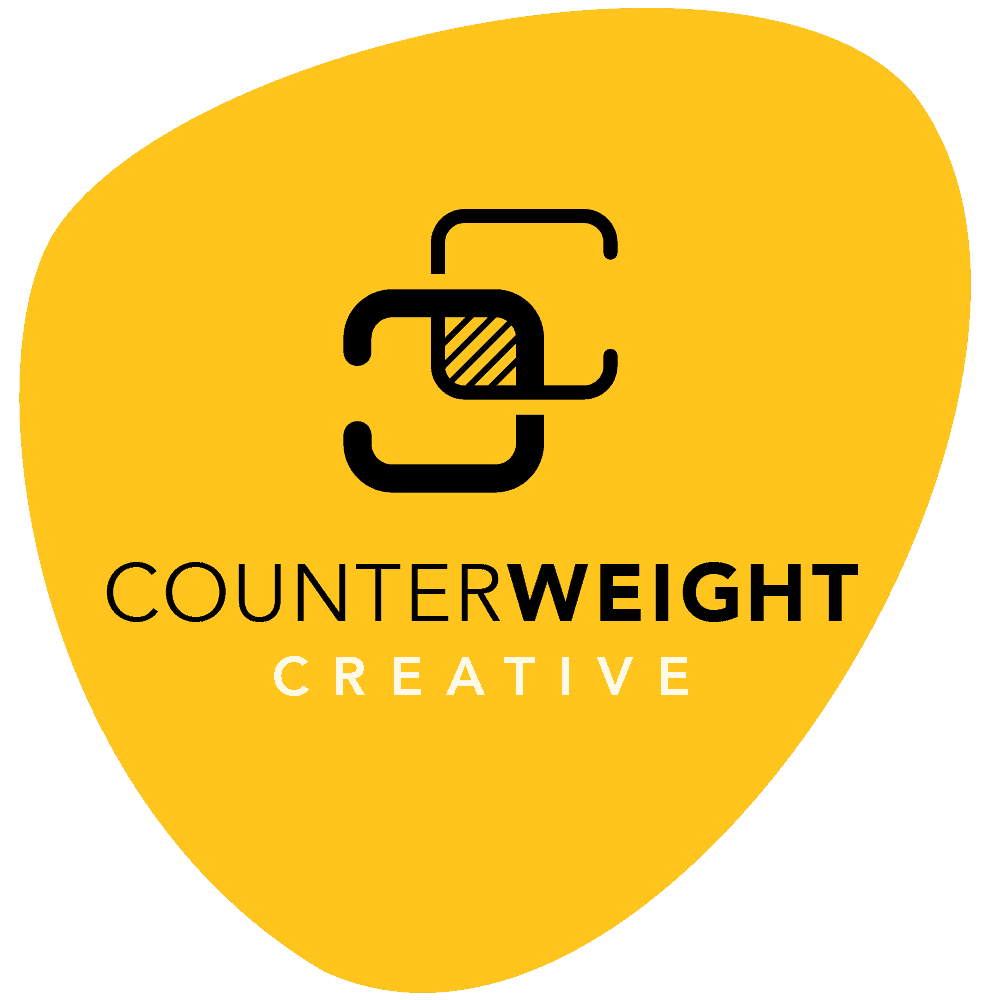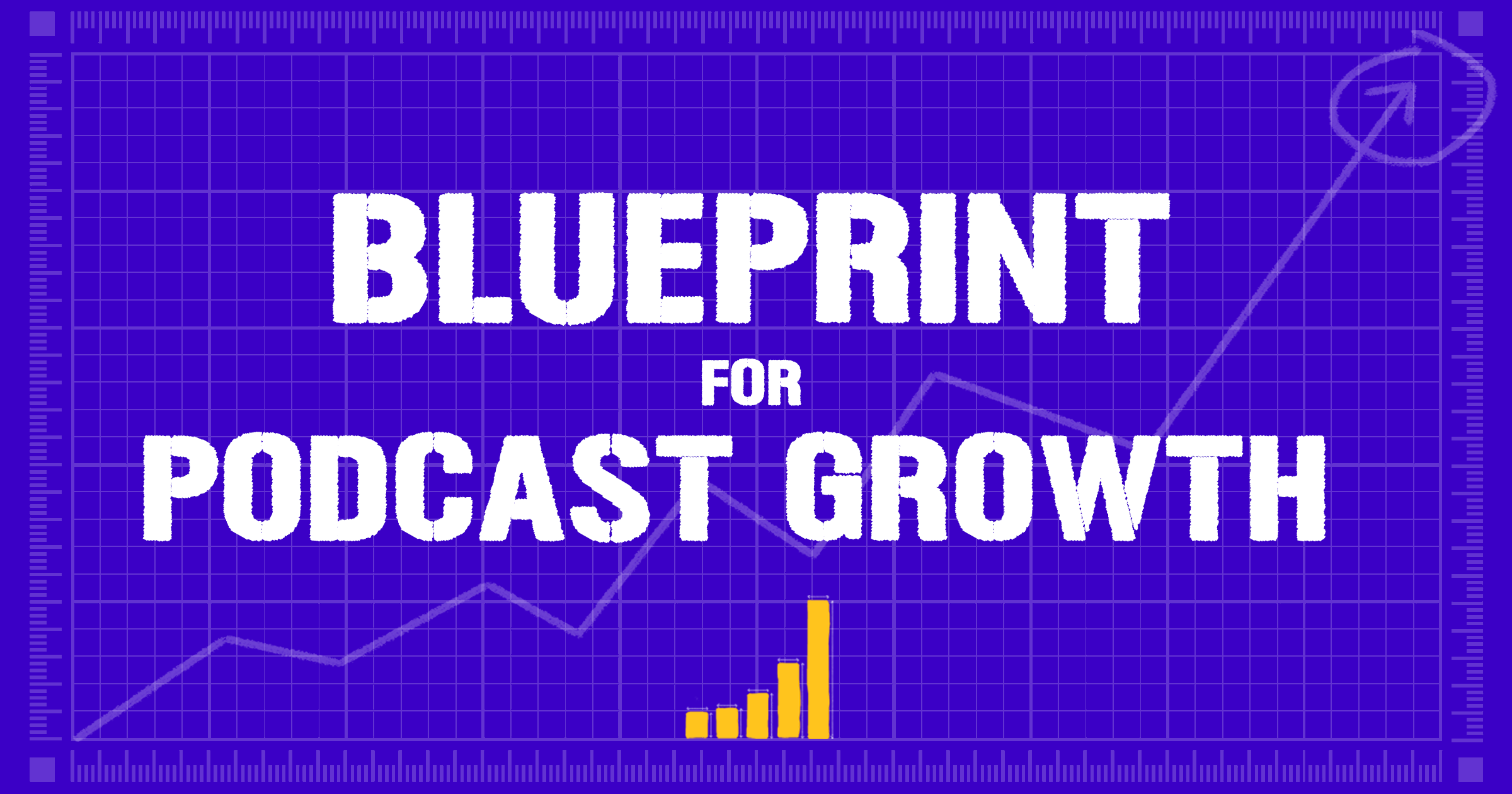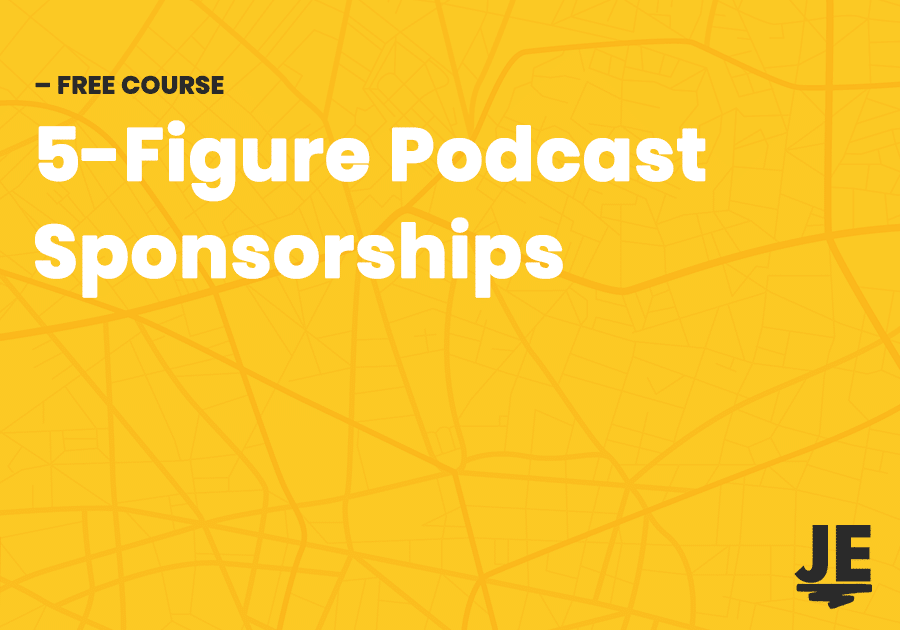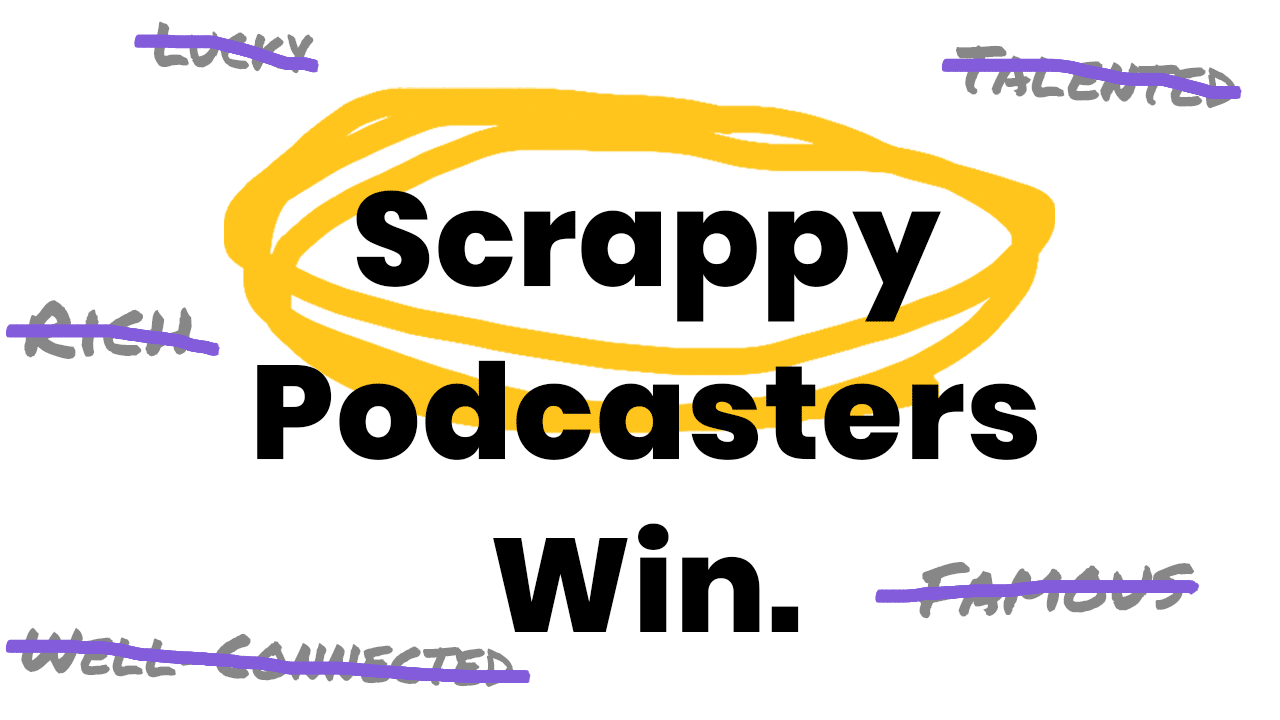If you’ve spent any amount of time randomly browsing the iTunes podcast library* you’ve probably noticed the strange phenomenon I like to call The Episode Seven Slump.
* Just me? Ah well, you don’t know the hidden wonders you’re missing out on…
This is the unfortunate fate many (most?) podcasters meet where they launch their podcasts with gusto, put out a handful of episodes… Aaaand then fall off the face of the podcast world. Sure, some make it past episode 7, but if we’re going with the data, if you make it past that milestone you’ve already succeeded when compared to the majority of aspiring podcasters.
What gives?
First off, I just want to let you know that this is the second part in a podcast series aimed at helping your brand or business approach podcasting the right way (although it’s equally as important to solo podcasters), and avoid scenarios such as the above-mentioned Slump. Last week we talked about what some of the benefits and drawbacks to podcasting are, especially when compared to other content publishing platforms, and why now is the time for your brand to start podcasting. If you haven’t checked it out yet, don’t worry I’ll wait. Or if you wanna be a rebel, save it for later, or even skip it entirely!
Ok, back to The Episode Seven Slump.
There are a few reasons you’ll encounter if you talk with anyone who’s either succumbed to the dreaded slump, or is on the brink.
- It just takes too much time to put out a great podcast (or even a not-so-great podcast)
- I’m not seeing any results in terms of downloads and subscribers (outside of my mom at least)
- I’m struggling to find guests or topics
- Listening back to my voice is so traumatizing I can’t do another episode, I won’t!
You know what? These all sound like pretty valid reasons, and we can’t fault these people for giving podcasting a shot, even if it wasn’t for them, right?
Wrong.
Because while all of those points might be true for many beginning podcasters, there is a deeper reason behind their podcast “failure”.
Failing to set their expectations correctly from the outset.
And who can blame them? When most of us start out, we have no idea what we’re doing! Seven episodes is almost two months worth of shows on a weekly publish schedule, isn’t that enough time to evaluate whether or not podcasting is a worthwhile endeavor?
In a word. No.
What Does A Successful Podcast Look Like?
First let’s determine what we’re even shooting for.
I think we can all agree that topping the podcast charts, getting featured on the iTunes front page and having sponsors lined up knocking on your door constitutes a successful podcast, right?
Maybe, but if that podcast doesn’t serve your existing business or help you achieve any of the goals you laid out when you started the show, maybe not.
At any rate, there are many, many ways to achieve success for your business through a podcast, and most of them likely don’t involve any of the above-mentioned trappings.
For example, I have a client who regularly gets about 500 listeners per episode. Sure, that’s ok, but it’s not great right? I think most of us would like to be getting at least 1000 listeners (if not 10,000) per episode consistently before we even begin thinking about labeling our podcast a success.
Oh, but here’s the thing, this client just pulled off a multi 6-figure launch of a product based almost entirely on that podcast audience and the exposure they’ve gained through their show.
Suddenly, 500 listeners per episode doesn’t look so bad huh?
Defining Success For Yourself
I know, I know, you just want me to tell you definitively what constitutes a successful podcast so you can get down to business and work your way towards those metrics. Sorry to burst your bubble, but you’re going to have to come up with those metrics on your own. I can help you get started, however.
I’m guessing there’s some specific reason you have for wanting to start a podcast for your brand. Sure, exposure is great, but I want you to think deeper. You probably don’t care much about exposure if the relationship with your listeners never moves beyond them listening to and enjoying your podcast.
What are you wanting to move them towards?
In the case of the client I mentioned above, their goal was to provide a ton of useful information through the podcast while moving their audience towards their selection of low priced eBooks and resources, and ultimately, their high-ticket course.
I’m working with a couple of podcasters at the moment who have books coming out in the next 1-2 years and are looking to build up an audience with the goal of converting them on book sales when they get published.
So what are you moving your audience towards?
I don’t care what your answer is, but if you’re starting a podcast for your brand, you absolutely need to know where you’re taking your audience. Don’t even think about gear, topics, guests or anything else podcast related until you have a clear, solid answer to this question.
If your goal involves converting your listeners into customers, make sure you come up with a defined set of financial numbers to which you can judge your success. I would recommend having three milestones for a given time frame.
- A “break even” sales figure, where the podcast can be considered a wash. Note that this is not necessarily comparing dollars in sales to dollars put into the podcast. You can produce the podcast entirely yourself and spend very little while putting in a lot of time. How much would it take for that time (or investment) to be worth it?
- A moderate success figure. This is where the podcast has been a net benefit to your business and it’s converting a decent amount of listeners into customers. This should be realistic and reachable.
- A big success. This is your moonshot number. What amount of podcast generated sales would make you ecstatic and absolutely fire you up to record each new episode? Dream big, but maintain some tie to reality here.
Note that these are purely the financial metrics of success, and do not take into account the connections you may form with other influencers, the increase in your own status as an expert, and all the other intangibles that ultimately can mean the most to you and your business in the long run.
One note, if you’d like to get my personal Podcast Success Metric Calculator
, you can get access to it here. It’s super easy to use and can help you get clear on what your goals are, and what you should be shooting for metric-wise.
Translating Your Goal Into Podcast Metrics
So once you have a clear idea of what you’re podcast’s purpose is and the metrics that you’ll use to keep track of where you’re at, it’s time to translate that into listenership numbers.
In other words, how many listeners will it take to achieve your goals?
To figure this out you’re going to need to take a couple of factors into account:
- Your target monthly (or yearly) monetary goal
- The price of your product or service offerings
- A target conversion rate of listeners into customers
These two factors will combine to give you a target number of listeners to work towards.
Now obviously this is an extremely simplified explanation. The conversion rate will change depending on the quality of your show and the content you provide, the nature of the audience you attract, and many other factors. It’s also likely that you’re not going to be converting new listeners on high-ticket products or services, so the average customer value should grow over time.
Similarly to when we were setting our success metrics, I recommend running the numbers using an ambitious conversion rate, a moderate conversion rate, and a low conversion rate.
I wish I could tell you what those numbers should be for you, but they can vary widely from niche to niche and podcaster to podcaster, so ask around what other similar podcasters are seeing, or base it off of an existing funnel you may have.
Ok, we’ve some numbers to work towards, how long should we dedicate to achieving them?
How Long An Evaluation Period Do I Need?
Before I get into the specifics of how long I recommend you dedicate to your podcast experiment, I want to be clear that you should have this clearly laid out before you launch. If there’s a common denominator between podcasters who drop off early, it’s that they didn’t do the necessary strategizing, planning, and budgeting before they hit submit on their iTunes feed.
Ok, so let’s get into time frames. To be blunt, for most podcasters, I would actually expect to not gain any significant traction for 15 episodes or so. That’s right, plan on having minimal listeners and little interaction with them for the first 3 months of your podcasts existence*.
* Longer if you don’t publish weekly, shorter if you publish multiple times a week.
In fact, my general advice for most of the brands and businesses I consult with is to give themselves six months to a year to build the podcast and start seeing results.
There’s no doubt about it, that’s a long time to wait for results.
Remember though, the benefits of sticking it out and building that audience through a podcast can be huge, and not easy to replicate through other media.
The thing about podcasting is that there is often a critical mass that can take a while to build up to, but the results are a long-term relationship that can pay off for years to come.
The client I mentioned above with the multi six-figure launch? They waited until they were about 30 episodes in (on a weekly publish schedule) before they pulled the trigger on their launch. But you know what? I know that this is only the start for them, and that when they relaunch their course again in the next 6 months or a year, it’s going to be even bigger.
Thirty episodes is a long time to wait, building the groundwork with little to show for it. I’m sure they had their doubts during that six month period as to whether they were throwing their money and time away on the podcast.
I’m guessing those doubts are long gone now.
It All Starts With A Plan
I’m not saying that every podcast has the chance to achieve the success that this client did, or in that time frame. Some ideas just aren’t suited for podcasts!
What I am saying is that either way, you need to have some objective measures for success that you’ve laid out before hitting publish on your first episode. It pains me to think of how many shows threw in the towel too early because they didn’t lay out a clear framework for success with milestones and timelines. Don’t let your idea be one of them.
If you’ve started a podcast for a brand or business you run, I’d love to hear how you determined success or failure for your show. What targets did you have in place, were they monetary or listener based? Let me know in the comments 🙂
Once again, you can click the button below to get access to my Podcast Success Metric Calculator free of charge. Simply plug in your monetary targets, average customer value and conversion rates and it’ll spit out exactly how many monthly listeners you should be shooting for!
- Why Wouldn’t They Just Google It? - March 14, 2021
- Before You Can Market Your Podcast, You Need To Create A Marketable Podcast - March 11, 2021
- Podcast Promotion & Marketing Are Different (Here’s How to Use Each Effectively) - March 10, 2021




